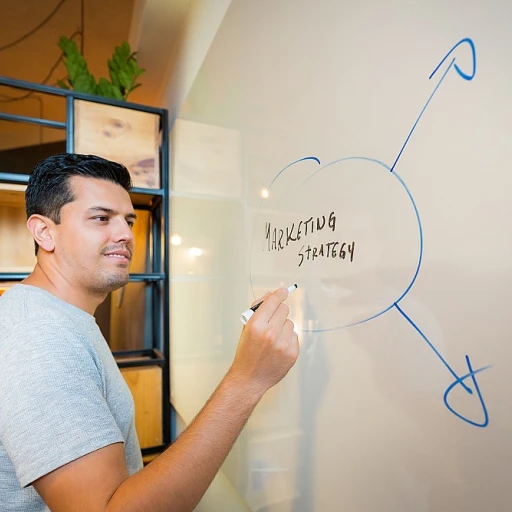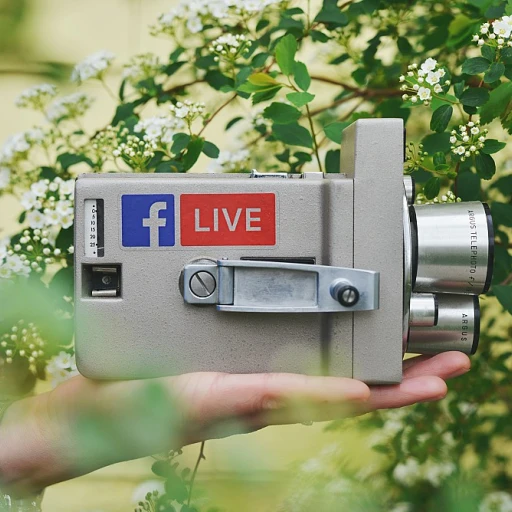
Understanding the Role of AI in SEO
The Power of AI in Elevating SEO Practices
In the realm of search engine optimization, artificial intelligence is reshaping the landscape by offering advanced capabilities to boost visibility and efficiency. The role of AI in SEO is expanding, enabling brands to fine-tune their strategies and maximize their reach. By harnessing AI's potential, companies can enhance the user-generated content on platforms to bolster their online presence.
AI tech leverages data to deliver insights on critical elements such as engagement rates and follower counts. This data is crucial for influencer marketing, where understanding audience demographics and ensuring brand alignment are paramount. Automated tools facilitate the vetting process by providing a detailed analysis of an influencer's metrics, ensuring that brands connect with social media creators whose performance aligns with their values.
From comprehensive media screening to identifying potential micro influencers, AI solutions streamline influencer discovery and analyze the performance metrics of various platforms like Instagram. By distinguishing genuine engagement from fake followers, these tools protect both brand safety and integrity.
Moreover, by automating repetitive tasks and managing vast datasets, AI-driven platforms offer marketers the ability to concentrate on strategic tasks, making full use of the vast oceans of information available online. As AI continues to evolve, it stands to revolutionize SEO practices by making them more targeted and effective, providing value both for brands and their target audiences alike.
The Importance of Influencer Vetting in SEO
Why Influencer Vetting Matters in SEO
Influencer marketing has become a crucial part of digital strategies for many brands, used to enhance awareness and engagement on social media platforms such as Instagram. However, the process is not as straightforward as it seems. There are key factors to consider to ensure alignment with brand values and audience demographics. Influencer vetting is essential for several reasons:- Audience Alignment: It is important for brands to connect with influencers whose followers match their target audience. By analyzing audience demographics, brands can assess whether the influencer's community aligns with their desired consumer base.
- Engagement Rates: Influencers with a significant follower count don't always guarantee engagement. Evaluating the influencer's engagement rate helps determine the potential impact on the brand's visibility and audience interaction. High engagement often signifies an active and interested follower base.
- Brand Safety and Values: Ensuring that the influencer aligns with the brand's values and reputation is crucial. Media screening, including background checks, ensures that influencers have a history free of controversies that could harm the brand's image.
- Detection of Fake Followers: With the rise of fake followers and low-quality engagement, influencers with artificially inflated metrics might not deliver genuine value. Identifying authentic influencer performance metrics ensures the benefits of a meaningful partnership.
AI-Powered Tools for Influencer Vetting
Leveraging AI for In-Depth Influencer Analysis
The integration of AI in the influencer vetting process can significantly enhance the effectiveness of identifying and selecting the right influencers for a brand. By automating data analysis, AI-powered tools scrutinize large sets of information across various social media platforms, making it easier for brands to discover influencers who truly align with their values and marketing goals.
One key aspect AI tools focus on is the engagement rate of potential influencers. These tools assess how an influencer's audience interacts with their content, evaluating likes, shares, and comments to determine genuine follower engagement rather than relying solely on follower counts. This nuanced analysis helps in distinguishing influential creators from those with inflated numbers due to fake followers.
Additionally, AI technologies perform media screening and background checks on influencers. They explore the social media history of potential influencers, digging deep into past posts and interactions to unearth anything that might be detrimental to a brand's image. Through this comprehensive approach, brands ensure that collaborations reinforce their image and adhere to brand safety guidelines.
AI tools also provide insights into audience demographics, enabling brands to understand if the influencer’s followers match their target audience. By analyzing data, these platforms can offer metrics on the audience’s age, location, gender distribution, and interests, which are crucial for informed decision-making in influencer marketing campaigns.
Moreover, specific platforms like Instagram are optimized by AI for influencer discovery. AI algorithms can swiftly sift through vast networks of micro influencers, identifying those with niche audiences that may prove more beneficial than larger, less engaged audiences.
However, despite these advantages, brands must approach AI-driven influencer vetting with caution. The algorithms rely on data input, which may not always fully capture human aspects such as creativity and authenticity. Understanding these limitations is vital for effective integration into marketing strategies. To explore how AI influences SEO strategies further, you might find this resource on SEO alternatives helpful.
Challenges in AI-Driven Influencer Vetting
Potential Setbacks in Utilizing AI for Influencer Vetting
While AI has ushered in transformative capabilities in influencer vetting, it's essential to address the challenges that accompany its integration. One of the primary concerns revolves around data accuracy and integrity. AI tools rely heavily on data inputs, and discrepancies or inaccuracies in data can result in flawed outcomes. This is especially critical when determining an influencer's audience demographics, follower count, and engagement rates. AI tools are only as good as the datasets they learn from. Inaccurate performance metrics can lead to misguided influencer collaborations, which might not align with a brand's values or target audience. Therefore, thorough media screening and continuous data validation processes are necessary to ensure reliable results. Another challenge is the platform-specific limitations. While AI can analyze vast amounts of content, platforms like Instagram might have restrictions on data access which can hamper a complete vetting process. This could affect the ability to perform background checks or to effectively tap into an influencer's real-time audience interaction. Moreover, the prevalence of fake followers remains a substantial hurdle. Despite advancements in AI-powered detection, fake follower accounts continue to skew engagement analytics, impacting the vetting process and distorting genuine influencer engagement metrics. Identifying and filtering out these accounts requires sophisticated algorithms, yet it can never be entirely foolproof. When it comes to brand safety, AI's limitations are also evident in understanding context and nuances of social media posts. Ensuring that an influencer's content aligns with a brand's identity involves assessing subtleties that AI might overlook, such as tonal shifts or underlying meanings in content. Lastly, there's the issue of over-reliance on AI tools. Human oversight remains crucial. Experts in influencer marketing must complement AI capabilities, providing insight into qualitative factors that are critical in ensuring the chosen influencers resonate with genuine brand alignment and authenticity within their audience engagement. While the potential of AI in influencer vetting is vast, these challenges highlight why a balanced approach, blending technological advancements with human expertise, remains key.Case Studies: Successful AI Implementation in Influencer Vetting
Illustrative Case Examples in Utilizing AI for Influencer Vetting
Exploring real-world applications of AI in influencer vetting showcases its potential to transform influencer marketing strategies. By leveraging AI technologies, brands are able to efficiently identify and engage the right influencers whose audience demographics align with their brand values. Here, we delve into a few exemplary cases demonstrating the power of AI in the vetting process.
Identifying Authentic Engagement
In the competitive world of influencer marketing, distinguishing genuine engagement from fake followers is crucial. AI-powered tools enable brands to conduct in-depth media screening on platforms like Instagram and other social media outlets. A renowned beauty brand, for instance, implemented an AI system to analyze follower engagement rates and performance metrics. This approach helped in identifying micro influencers whose audience showed authentic interest, enhancing brand safety and alignment.
Streamlining Influencer Discovery
AI not only aids in vetting but also streamlines the discovery of potential influencers. By harnessing algorithms that sort through vast amounts of social content, brands can discover creators who might have gone unnoticed. An apparel company employed AI tools to sift through audience profiles and engagement patterns, ultimately selecting influencers that mirrored their target audience’s preferences, resulting in a significant boost in campaign performance.
Enhanced Audience Analysis
Understanding audience demographics is pivotal for successful influencer collaborations. AI has provided a solution by offering nuanced insights into follower counts and engagement across multiple platforms. A case in point is a tech brand that utilized AI to perform background checks extending beyond simplistic metrics. This comprehensive vetting process allowed the company to ascertain the influencer's true reach and ensure alignment with their campaign objectives.
These cases exemplify how AI-driven processes in influencer vetting optimize marketing strategies, ensuring a higher return on investment and more relevant audience engagement.
Future Trends in AI and Influencer Vetting for SEO
Emerging Trends in AI and Influencer Vetting
As artificial intelligence continues to evolve, its role in influencer vetting for search engine optimization is set to expand significantly. Brands are increasingly relying on AI to streamline the vetting process, ensuring that influencers align with their brand values and target audience. Here are some key trends to watch:
- Advanced Audience Demographics Analysis: AI tools are becoming more sophisticated in analyzing audience demographics, allowing brands to better understand the influencer's follower base. This ensures that the influencer's audience aligns with the brand's target audience, enhancing engagement rates and overall campaign performance.
- Detection of Fake Followers: With the rise of fake followers, AI-powered tools are crucial in identifying and filtering out influencers with inflated follower counts. This ensures that brands invest in genuine engagement rather than vanity metrics.
- Enhanced Social Media Screening: AI is improving the ability to conduct comprehensive background checks on influencers, analyzing their social media history for any red flags that might affect brand safety. This includes assessing past content and engagement to ensure alignment with brand values.
- Micro Influencers and Niche Markets: AI is making it easier to discover micro influencers who may have smaller follower counts but higher engagement rates. These influencers often have a more dedicated audience, making them valuable for niche marketing strategies.
- Integration with Multiple Platforms: As social media platforms like Instagram continue to evolve, AI tools are being designed to integrate seamlessly across various platforms, providing a holistic view of an influencer's performance metrics and engagement rates.
These trends indicate a future where AI not only enhances the efficiency of the influencer vetting process but also ensures that marketing efforts are more targeted and effective. As brands continue to prioritize influencer marketing, leveraging AI will be essential in navigating the complexities of social media and ensuring successful brand alignment.













